Practical Travel Information for Muslim Visitors to Budapest
Budapest is a great city for Muslim travelers. This Hungarian capital has amazing architecture, thermal baths, and lots of history while making it easy to keep up with religious practices. We always tell people it's one of the more accessible European cities for Muslims.
The food scene here has tons of halal options, there are active mosque communities, and you'll find practical things you need as a Muslim traveler. Sure, any new place takes some planning, but Budapest is pretty welcoming and more places are understanding what Muslim visitors need.
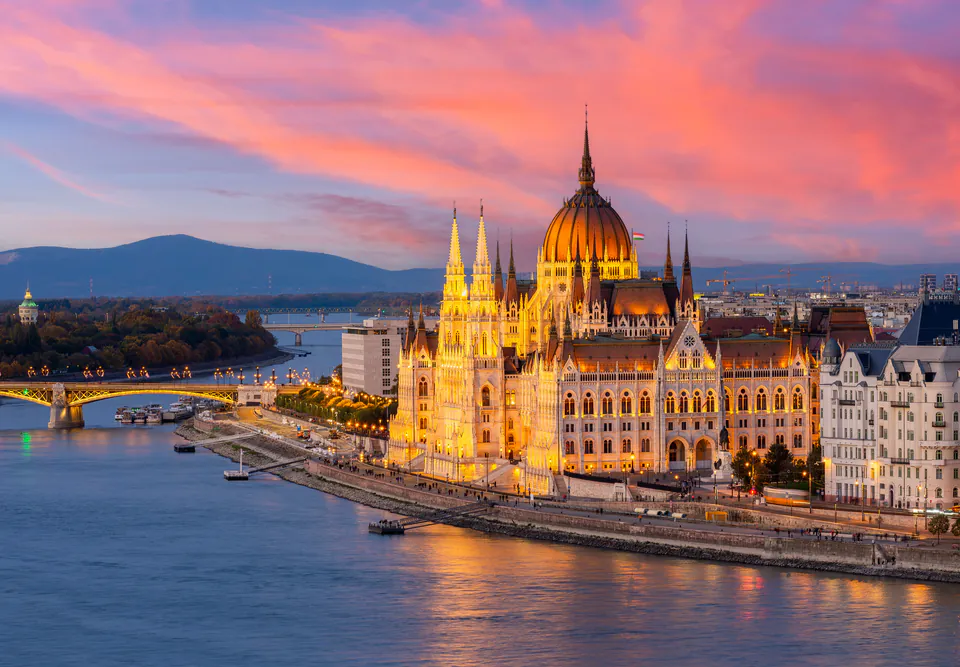
Finding Halal Food in Budapest
Budapest has really stepped up its halal food game in recent years. You'll find lots of Middle Eastern, Turkish, and South Asian places, especially in areas like Újlipótváros where there's a good concentration of halal-friendly spots.
Restaurant Recommendations
There are tons of places serving authentic halal food, from casual spots to fancier restaurants. Al Amir Étterem on Petőfi Sándor street is amazing for Syrian food. We love their hummus, baklava, and Aleppo kebab. The place is super clean and they deliver too, which is handy.
If you're into Turkish food, Szeráj Turkish Restaurant on Szent István boulevard has a huge menu with gyros, stews, and traditional desserts. We've eaten there multiple times and the food is always fresh and tasty. Their chicken gyro and beef doner are really popular, and the prices are reasonable.
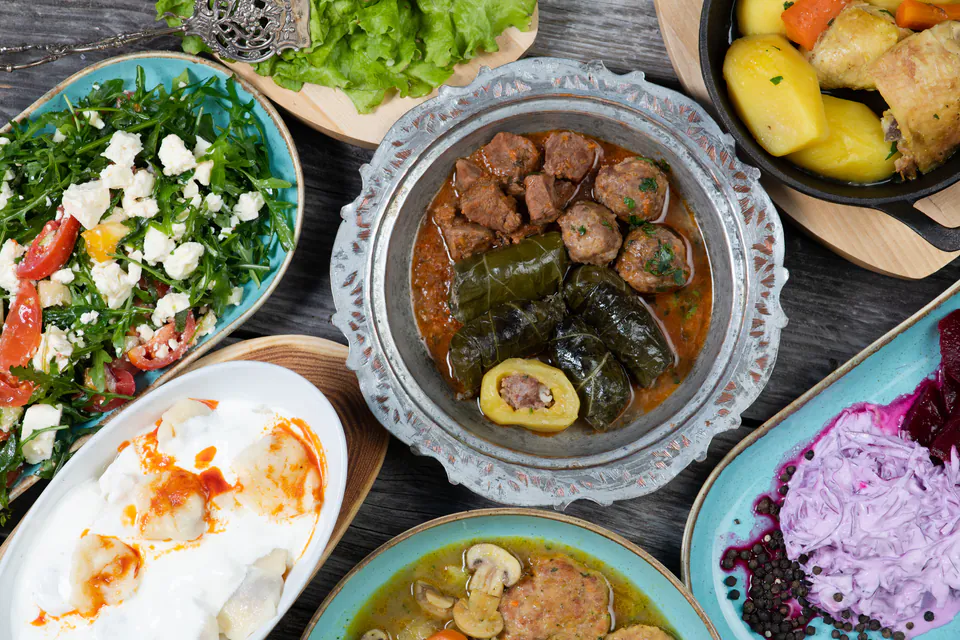
For South Asian flavors, Curry House on Horánszky street is perfect for families. The place is spacious and welcoming. We always order their butter chicken, biryani, and fresh naan bread. It's one of those places where you feel comfortable bringing kids.
Recommended Halal Restaurants
| Restaurant Name | Cuisine Type | Location | Signature Dishes |
|---|---|---|---|
| Al Amir Étterem | Syrian | Petőfi Sándor u. 18 | Hummus, Aleppo Kebab, Baklava |
| Baalbek Lebanese Restaurant | Lebanese | Váci utca 34 | Lamb Kebab, Mezze Platter |
| Curry House | Indian | Horánszky utca 1 | Butter Chicken, Biryani |
| Szeráj Turkish Restaurant | Turkish | Szent István krt. 13 | Chicken Gyro, Beef Doner |
| Mughal Shahi Restaurant | Pakistani | Városmajor utca 57 | Chicken Biryani, Tikka Masala |
Hungarian Cuisine with Halal Options
Getting traditional Hungarian dishes that are halal is pretty tricky. Noor Lounge & Restaurant does halal goulash during Ramadan, which is one of the few places where you can try Hungary's most famous dish while staying halal. We were excited to find this option during our last visit.
Finding halal versions of other Hungarian classics like chicken paprikash is much harder. Traditional recipes often use ingredients that aren't halal. If you really want to try local food, just ask the restaurant staff directly about where their meat comes from and how they prepare it.
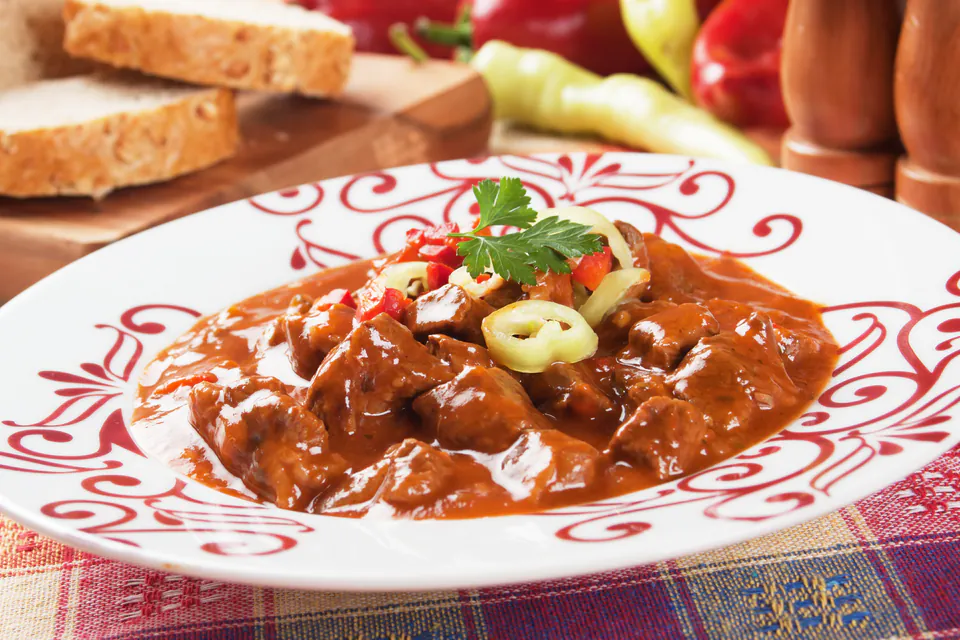
Halal Grocery Shopping
If you prefer cooking your own meals, there are several dedicated halal grocery stores and butchers around Budapest. These places have halal meat, spices, and specialty ingredients you won't find in regular supermarkets like Spar or Lidl.
Turkuaz Market on József boulevard has a good selection of Turkish and Middle Eastern groceries plus fresh halal meat. It's close to Rákóczi square, so it's easy to get to if you're staying in central areas. Maxximarket on Kőbányai street is bigger and has free parking, which is great if you're buying a lot of stuff for a longer stay.
Dining Considerations
There are a few things to keep in mind when eating at halal-friendly places in Budapest. Many restaurants serve alcohol alongside halal dishes, which might bother some people. Also, places that serve both halal and non-halal food might have cross-contamination issues with shared cooking surfaces or utensils.
You should ask about certification status because many places are "halal-friendly" rather than officially certified. This usually means Muslim ownership and halal meat but without official certification from a recognized body. If you need strict certification, look for official logos or ask the management directly about their standards.
Prayer Facilities and Mosques
Budapest's Muslim community isn't huge, but there are several active mosques and Islamic centers that welcome both locals and visitors. These places serve people from Arab, Turkish, Persian, African, South Asian, and Hungarian backgrounds, so international travelers feel included.
Major Mosques
The Budapest Mosque on Bartók Béla út is the biggest and most well-known Islamic place in the city. It opened in 2011 and is run by the Organization of Muslims in Hungary. This three-story building can fit about 500 people for Friday prayers. It's not just for prayer though - they also have Arabic courses, lectures, and interfaith programs.

Masjid Al-Huda on Dobozi street is smaller and more intimate. They have confirmed facilities for women and disabled access. The mosque has ablution rooms and a welcoming atmosphere with community events and religious classes. We heard some visitors had concerns about where the women's entrance is located, so you might want to check current arrangements.
Masjid-Al Noor on Rákóczi street is right in the center, which makes it super convenient if you're staying downtown. The mosque has a peaceful feel and they have dedicated space for women along with the main prayer hall.
Key Prayer Facilities
| Mosque Name | Address | Key Features | Special Notes |
|---|---|---|---|
| Budapest Mosque | Fehérvári út 41 | Largest mosque, community center, education programs | Public transport accessible, parking available |
| Masjid Al-Huda | Dobozi utca 1 | Women's facilities, ablution rooms, courses | Disabled access confirmed |
| Masjid-Al Noor | Rákóczi út 84 | Central location, peaceful atmosphere | Women's space confirmed |
| Masjid Dar Al-Salam | Bartók Béla út 29 | Active community, cultural activities | Contact for specific details |
Airport Prayer Facilities
Budapest Liszt Ferenc International Airport has a "Room of Silence" on the mezzanine level of Terminal 2B, above the baggage drop-off area. This multi-faith space works for prayer, meditation, and quiet reflection for travelers of all beliefs. However, it doesn't have specific Muslim amenities like dedicated ablution areas or clear Qibla direction markings, so you'll need to use regular restroom facilities for wudu.
Prayer Times and Apps
You can get accurate prayer times for Budapest through various mobile apps and websites. Good options include Athan Pro, Pray Watch, and Prayer Times & Qibla Finder, which let you customize for different calculation methods. The Organization of Muslims in Hungary's website (Iszlam.com) and Mawaqit also have local prayer schedules specifically for Budapest's location.
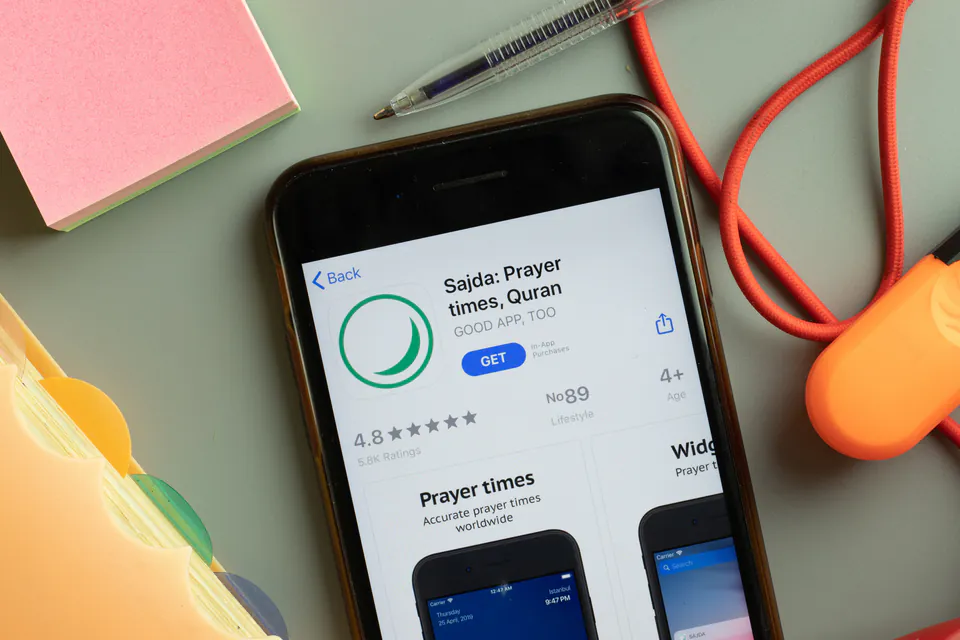
Mosque Etiquette for Visitors
Budapest's mosques usually welcome non-Muslim visitors and tour groups, which creates opportunities for cultural exchange. Proper etiquette makes sure everyone has a respectful experience. Visitors should dress modestly with covered shoulders and knees, and women typically need head coverings (they often have scarves available at entrances).
You have to remove shoes before entering prayer areas, and there's usually designated storage. Keep conversations quiet, silence your phone, and don't take photos of people during prayer unless you're participating. Be mindful of the five daily prayer times and try not to disrupt congregational prayers.
Cultural Climate and Local Interactions
Understanding Hungary's complex cultural and political situation helps Muslim travelers handle social interactions better. While national politics has included anti-immigration talk, especially since 2015, the day-to-day reality in cosmopolitan Budapest is often quite different from this bigger picture.
Social Experiences
Most Muslim visitors tell us they had really positive experiences in Budapest. They describe the city as welcoming, diverse, and safe. University areas are particularly open to international visitors, and the active Muslim communities help create a sense of belonging. However, experiences vary - some travelers get curious stares or occasional negative reactions, especially those wearing visible Islamic dress.
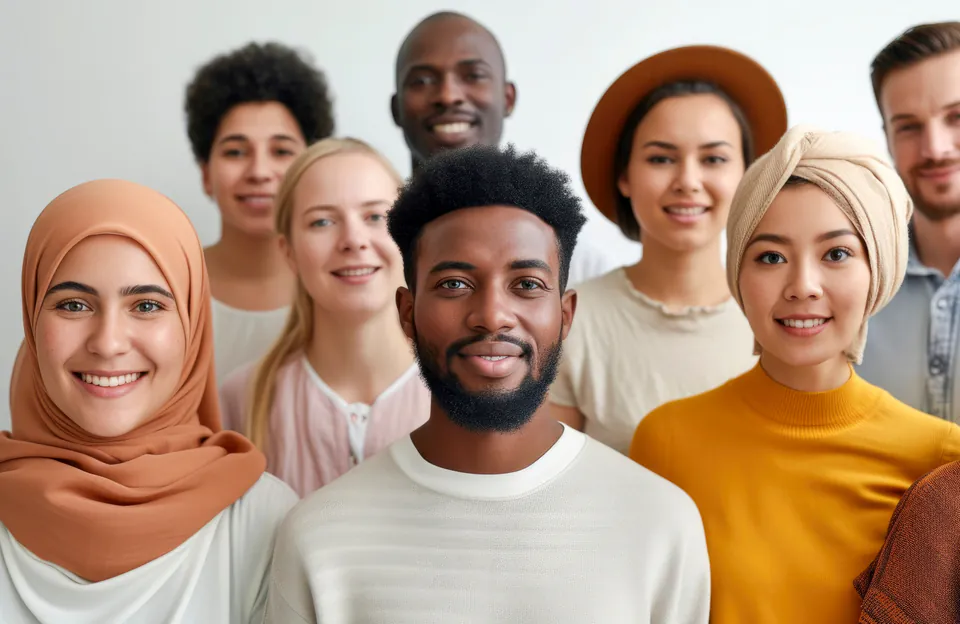
The difference between curiosity and hostility often depends on context and location. Central Budapest is generally more familiar with diverse populations compared to rural areas. Stares directed at visibly Muslim individuals might come from curiosity rather than hostility, since Muslims make up a small percentage of Hungary's population.
Building Positive Connections
Successful cultural engagement often starts with showing respect for Hungarian customs and traditions. Learning basic Hungarian phrases like "Szia" (hello) or "Köszönöm" (thank you) shows you appreciate local culture. Hungarians can seem reserved or direct at first, but patience and polite interaction usually lead to positive exchanges.
The "Muslim Walk" tour by Datolya Klub creates structured opportunities for dialogue between Muslims and non-Muslims through visits to mosques and halal places. These initiatives help bridge cultural gaps while educating locals about Islamic practices and beliefs.
Community centers like Mira, run by Artemisszio Foundation, work to connect locals with international visitors. While specific Muslim student associations aren't widely documented, organizations like PCIM Hongaria support Indonesian Muslim students, so there might be networking opportunities for travelers looking for community connections.
Dress Code Considerations
Appropriate clothing makes you more comfortable and accepted while traveling in Budapest. The city is very walkable with lots of cobblestone streets, so comfortable shoes are essential for all visitors. Smart-casual clothing works for most situations, from restaurant dining to museum visits.
Hijab Experiences
Hungarian law guarantees religious freedom, so wearing hijab is legally protected. However, social experiences vary among individuals. Some Muslim women report feeling completely comfortable and safe, even getting kindness from strangers like offered seats on public transport. Others encounter negative reactions ranging from long stares to occasional verbal comments.

Central Budapest's cosmopolitan environment generally gives more positive experiences compared to areas with less diversity. Travelers wearing hijab should prepare for potential attention while reasonably expecting respectful interactions, particularly in the capital's main districts.
Religious Sites and Modest Dress
Major religious sites including St. Stephen's Basilica and the Great Synagogue require modest dress covering shoulders and knees for all visitors. Carrying a lightweight scarf or shawl gives you easy coverage when needed. Similar respectful clothing applies when visiting historical sites like Buda Castle or government buildings.
Thermal Bath Policies
Budapest's famous thermal baths have specific swimwear requirements that have evolved regarding modest clothing. Current official policies at major baths like Széchenyi and Gellért permit burkinis and full-coverage swimwear made from appropriate, quick-drying materials. Regular cotton clothing is still not allowed in pool areas.
Despite these official updates, past controversies and conflicting information on third-party websites create lingering uncertainty. We recommend checking current policies on specific bath websites before visiting and being prepared to clarify rules with staff if questioned.

Rudas Bath has women-only days on Tuesdays and men-only days on Monday, Wednesday, Thursday, and Friday, with weekends remaining co-ed. These gender-specific times might provide more comfortable environments for some travelers, though swimwear requirements still apply.
Ottoman Heritage and Islamic History
Budapest's 145-year Ottoman period (1541-1686) left significant cultural legacies that continue enriching the city's character. This historical connection gives fascinating exploration opportunities for Muslim travelers interested in Islamic heritage within European contexts.
Historical Significance
The Ottoman Empire's presence in Hungary began after the decisive Battle of Mohács in 1526 and Buda's capture in 1541. This period introduced lasting cultural elements including thermal bath development, rose cultivation, and Turkish loanwords still present in Hungarian language. The era ended with Habsburg recapture in 1686, but Ottoman architectural and cultural influences remain visible throughout the city.
Ottoman-Era Sites
Several remarkable sites showcase Budapest's Islamic heritage. The Tomb of Gül Baba on Mecset street represents Europe's northernmost Islamic pilgrimage site, honoring a 16th-century Ottoman Bektashi dervish and poet known as the "Father of Roses." The site has beautiful terraced rose gardens, exhibition spaces, and panoramic city views, creating peaceful environments for reflection.
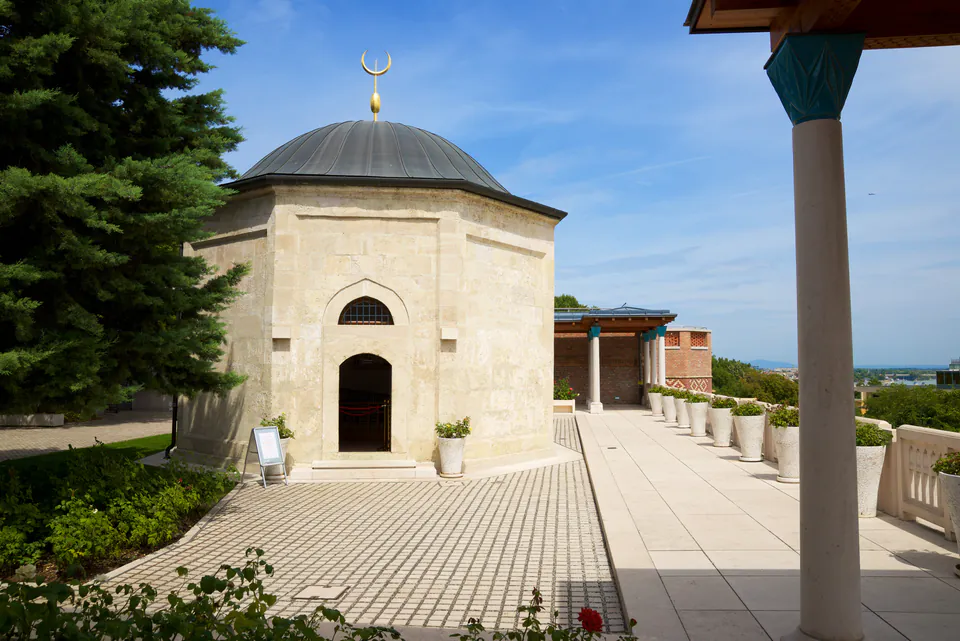
The city's thermal baths represent the most enduring Ottoman legacy. Rudas Thermal Bath, commissioned by Sokollu Mustafa Pasha in the 16th century, maintains its original octagonal pool under a magnificent dome while incorporating modern wellness facilities. Veli Bej Bath, also commissioned by Sokollu Pasha, underwent restoration and reopening after decades of closure, featuring original Turkish pools alongside contemporary amenities.
Király Thermal Bath, built within castle walls for siege-time use, is currently closed for reconstruction but represents another significant Ottoman architectural achievement. These facilities show how Islamic architectural principles influenced Budapest's famous spa culture.
Ottoman Heritage Sites
| Site Name | Era | Historical Significance | Visitor Access |
|---|---|---|---|
| Gül Baba Türbéje | 16th century | Northernmost Islamic pilgrimage site in Europe | Open Tue-Sun, free admission |
| Rudas Thermal Bath | 16th century | Original Ottoman bath with domed pool | Operational with historic core |
| Veli Bej Bath | 16th century | Restored Ottoman bath complex | Open with modern amenities |
| Matthias Church | Ottoman occupation | Served as main mosque during occupation | Open as Catholic church and museum |
Cultural Legacy
Beyond architectural monuments, Ottoman influence goes through Hungarian culture through language, cuisine, and traditions. Turkish loanwords related to coffee (kávé) and tobacco (dohány) remain in everyday Hungarian vocabulary. The introduction of roses, attributed to Gül Baba, continues through Budapest's garden culture and the maintained rose gardens at his tomb.
Specialized tours like those from HalalBudapest give deeper insights into these connections, including visits to lesser-known sites and detailed historical context. Such experiences help Muslim travelers understand their cultural heritage's lasting impact on European development.
Safety and Practical Considerations
Budapest maintains excellent safety standards for international visitors, with major travel advisories typically rating it at the lowest risk level. The city's low violent crime rates and efficient emergency services contribute to its reputation as one of Europe's safer capitals.
General Safety Guidelines
Petty crime is the main concern for tourists, particularly pickpocketing in crowded areas like public transport, train stations, and popular markets. The Great Market Hall, Váci Street, and Castle District require extra vigilance because of heavy tourist traffic. We always keep belongings secure, avoid flashy displays of wealth, and use front pockets or closed bags to prevent opportunistic theft.
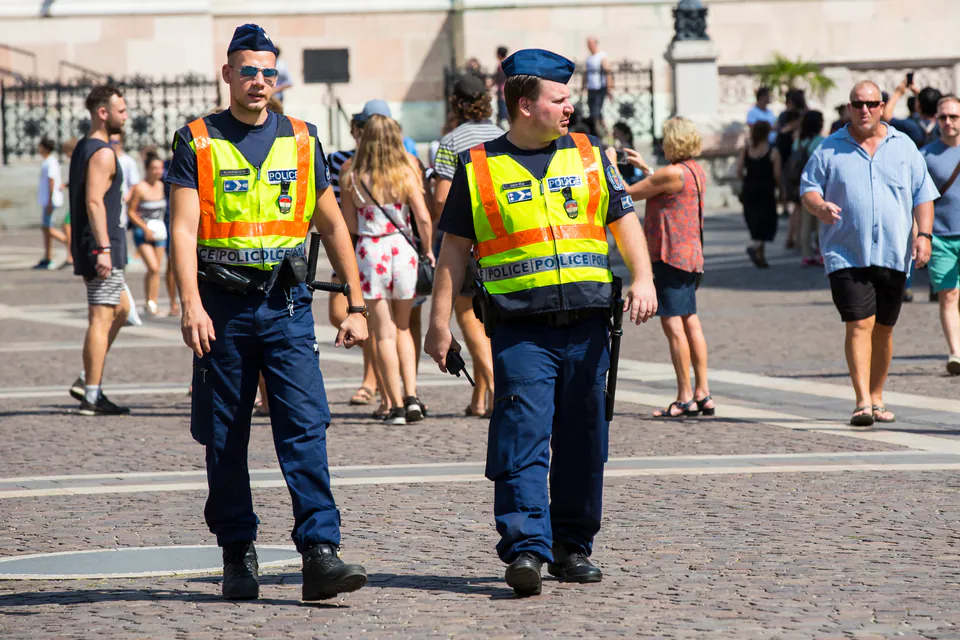
Common tourist scams include restaurant overcharging, unlicensed taxi services, and illegal street money exchange. Always check menu prices before ordering, use licensed yellow taxis or reputable ride-hailing apps like Bolt, and exchange currency only at banks or official bureaus. ATMs inside bank branches give the safest cash access while avoiding potential tampering.
Emergency Information
Hungary's emergency system uses the standard European number 112 for police, ambulance, and fire services, with English-speaking operators available. Specific Hungarian numbers include 104 for ambulance, 107 for police, and 105 for fire department. The Tourist Police Helpline (+36 1 438 8080) operates 24 hours specifically for crime victims and connects callers with English-speaking representatives.
Hungarian law requires carrying official identification at all times, with passports necessary for tourists. Police can request identification checks, and photocopies generally aren't considered sufficient. Accommodation providers now digitally scan guest identification during check-in as part of registration requirements.
Specific Considerations for Muslim Travelers
While Budapest generally provides safe environments for all tourists, awareness of the broader political climate helps Muslim visitors prepare for potential social interactions. Most reported incidents involve verbal comments or stares rather than physical confrontations, with serious safety threats remaining rare.
The difference between central Budapest's cosmopolitan atmosphere and more homogeneous outer areas affects social experiences. Staying in central districts (V, VI, parts of VII) typically provides the most welcoming environments, while some outer areas of district VIII require more caution, particularly after dark.
We always recommend maintaining situational awareness, showing respect for local customs, and avoiding confrontational situations to ensure positive experiences. The presence of active Muslim communities and established Islamic infrastructure indicates general acceptance of religious diversity within the capital.
Essential Travel Information
Successfully getting around Budapest requires understanding key practical elements that make the overall travel experience much better. From public transport validation to cultural etiquette, these details really impact trip enjoyment and local interactions.
Public Transport Navigation
Budapest's extensive BKK network includes four metro lines, numerous bus routes, trams, and trolley-buses connecting all major attractions. The BudapestGO mobile app has route planning, schedules, and ticket purchasing capabilities, making navigation much easier for international visitors.
Ticket validation is a critical requirement that catches many tourists unprepared. We learned this the hard way during our first visit when we got fined for not validating properly! Single tickets must be validated before starting journeys, with different procedures for various transport modes. Metro tickets require validation at orange or yellow machines located at station entrances before proceeding to escalators or platforms. Bus, tram, and trolley-bus tickets need validation in onboard machines immediately after boarding.
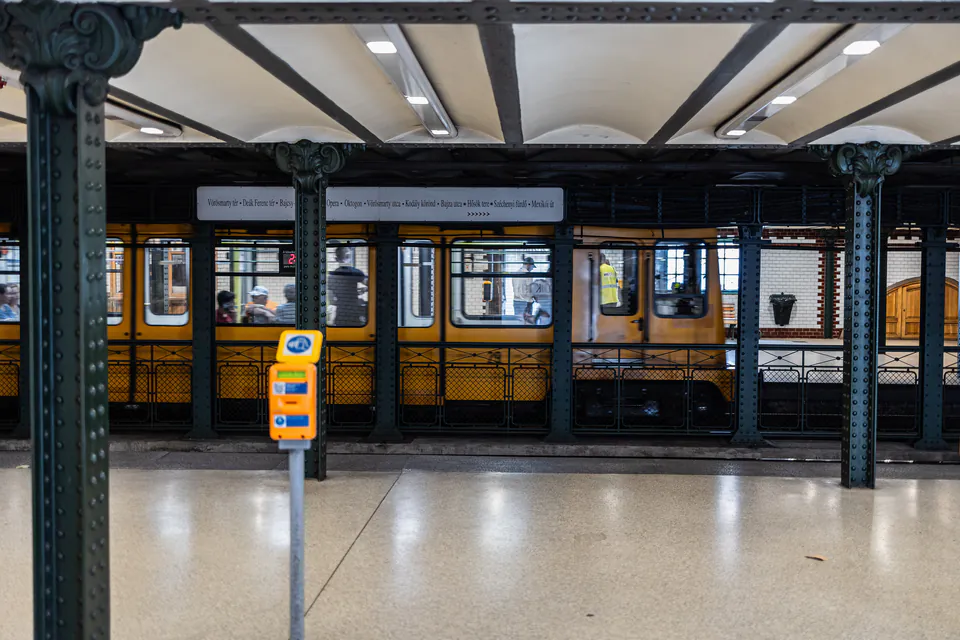
Failure to validate properly results in significant on-the-spot fines (about 50 Euros), enforced by frequent inspections from plain-clothed ticket controllers. Travel passes for 24-hour, 72-hour, or weekly periods are better value for multiple journeys and typically require only initial activation rather than repeated validation.
Currency and Payments
Hungary uses the Hungarian Forint (HUF) rather than the Euro, despite EU membership. Exchange rates change regularly, so checking current rates before travel is smart. Credit and debit cards are widely accepted in shops, restaurants, and hotels throughout Budapest, though carrying cash is still wise for smaller purchases or places that might not accept cards.
Official exchange bureaus and banks are the safest currency exchange options, while street exchanges are illegal and carry high fraud risks. Airport exchange rates typically aren't as good as city center locations. ATMs inside bank branches provide the most secure cash access with protection against tampering.
Communication and Cultural Etiquette
While English is commonly spoken in tourist areas and by younger generations, attempting basic Hungarian phrases shows cultural respect and often makes local interactions better. Hungarian's complexity makes pronunciation challenging for most visitors, but efforts are generally appreciated.
Understanding Hungarian etiquette prevents misunderstandings and helps build positive relationships. Firm handshakes with direct eye contact work for formal introductions, while greetings vary between formal ("Jó napot") for strangers and informal ("Szia") for peers. Removing shoes when entering homes and bringing small gifts like flowers or chocolates shows proper respect.
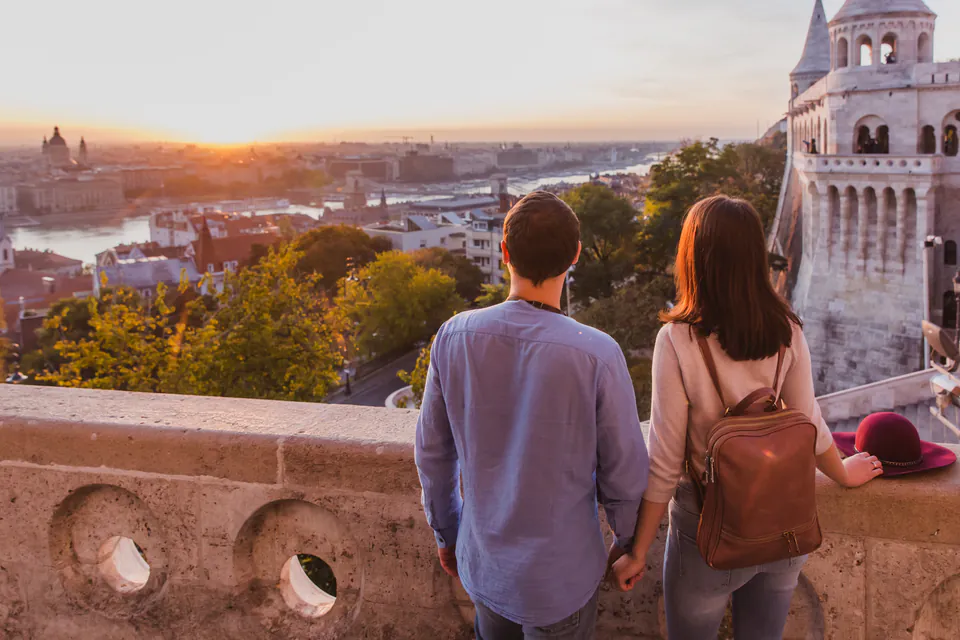
Dining etiquette includes waiting for hosts to begin eating, using utensils for all food including bread, and saying "Jó étvágyat" (Enjoy your meal) before starting. Tipping 10-15% is customary when service charges aren't included, though careful attention to payment language prevents confusion, as saying "Köszönöm" (Thank you) while paying can be interpreted as "keep the change."
The unique tradition against clinking beer glasses while toasting comes from historical events related to the 1848 revolution. Wine and spirits like pálinka work for traditional toasts with "Egészségedre!" (To your health!), but beer requires different etiquette.